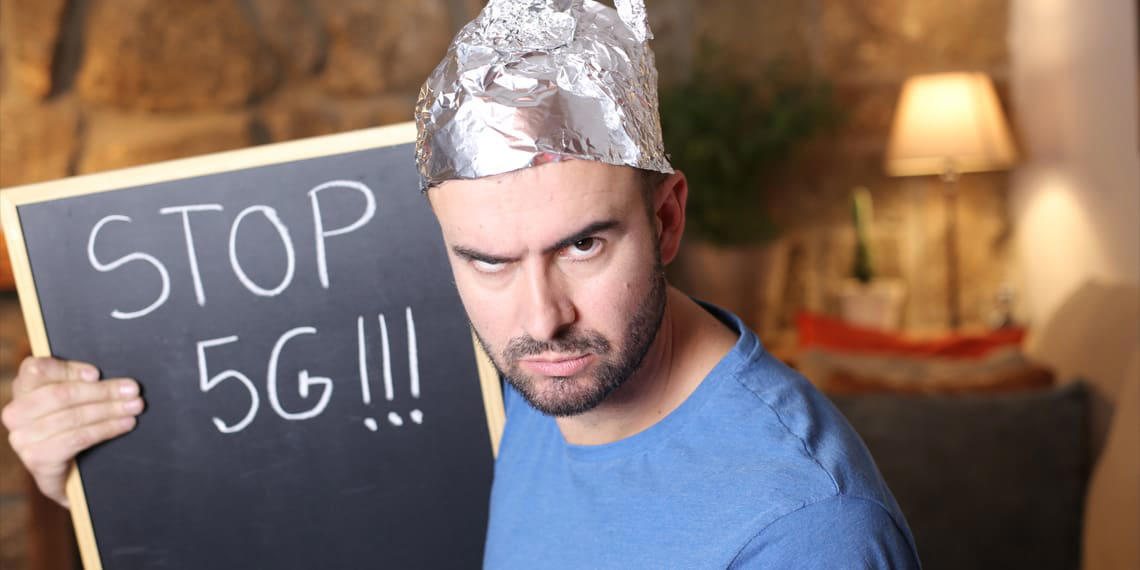Younger individuals more likely to endorse conspiracy beliefs

Recent research has found that endorsement of conspiracy beliefs tends to decrease slightly with age. Stronger conspiracy beliefs among young people may be explained by their predisposition toward unconventional styles of political participation, lower self-esteem, and general resentment of politics. The findings were published in Political Psychology.
Conspiracy beliefs are the view that certain events, situations, or phenomena are secretly manipulated or controlled by powerful, hidden groups or individuals with malicious intent. These beliefs often rely on the assumption that official accounts or explanations are false and that a covert agenda is at play.
For example, a common conspiracy belief is that the moon landing was faked by the United States government to win the space race during the Cold War. Another example is the belief that vaccines are part of a secret plot to harm or control populations, despite substantial scientific evidence supporting their safety and effectiveness.
Such beliefs often arise from mistrust of authority, fear, or a desire to find explanations for complex or unsettling events. They are reinforced through selective evidence, cognitive biases such as confirmation bias, and social influences like online communities. While some conspiracy beliefs are harmless, others can lead to significant societal harm, such as vaccine refusal or violence against perceived conspirators.
Study authors Jean-Nicolas Bordeleau and Daniel Stockemer sought to explore how conspiracy beliefs change as people age. They hypothesized that these beliefs decrease with age due to young people’s preference for unconventional forms of political participation (which align with unconventional beliefs), lower self-esteem, and lower satisfaction with democracy in the United States.
The researchers began with a meta-analysis using a comprehensive database of conspiracy research, which included 1,225 scientific publications spanning 1927 to 2024. They focused on studies published in the last 10 years, narrowing their analysis to 110 individual articles reporting data from 374,222 participants. This meta-analysis revealed a very slight, practically negligible, negative association between age and conspiracy beliefs. In other words, conspiracy beliefs were marginally weaker among older individuals.
The second study involved 6,098 participants from Australia, Brazil, Canada, Germany, the United States, and South Africa, with approximately 1,000 participants from each country. Participants completed assessments of conspiracy beliefs (using the Generic Conspiracist Beliefs Scale), support for political activism (4 items), self-esteem (measured by the Rosenberg Self-Esteem Scale), and political disaffection—including activism and satisfaction with democracy—measured by questions such as, “How satisfied are you with the way democracy works in [country]?”
The results confirmed that conspiracy beliefs are indeed weaker among older individuals. The study authors tested a statistical model suggesting that self-esteem and satisfaction with democracy increase with age, while support for political activism decreases. In turn, higher self-esteem, greater satisfaction with democracy, and lower support for political activism were associated with lower conspiracy beliefs. Statistical testing confirmed that this model of relationships between these factors is plausible.
“We find that youth are more likely to believe in conspiracy theories. This does not, however, imply that young adults have a higher likelihood to believe in all types of conspiracy theories. Rather, there might be conspiracy theories which are more popular for older people, whereas others might resonate more with younger people,” the study authors concluded.
The study sheds light on the relationship between age and conspiracy beliefs. However, the connection is weak, indicating that conspiracy beliefs largely depend on factors other than age.
The paper, “On the relationship between age and conspiracy beliefs,” was authored by Jean-Nicolas Bordeleau and Daniel Stockemer.

